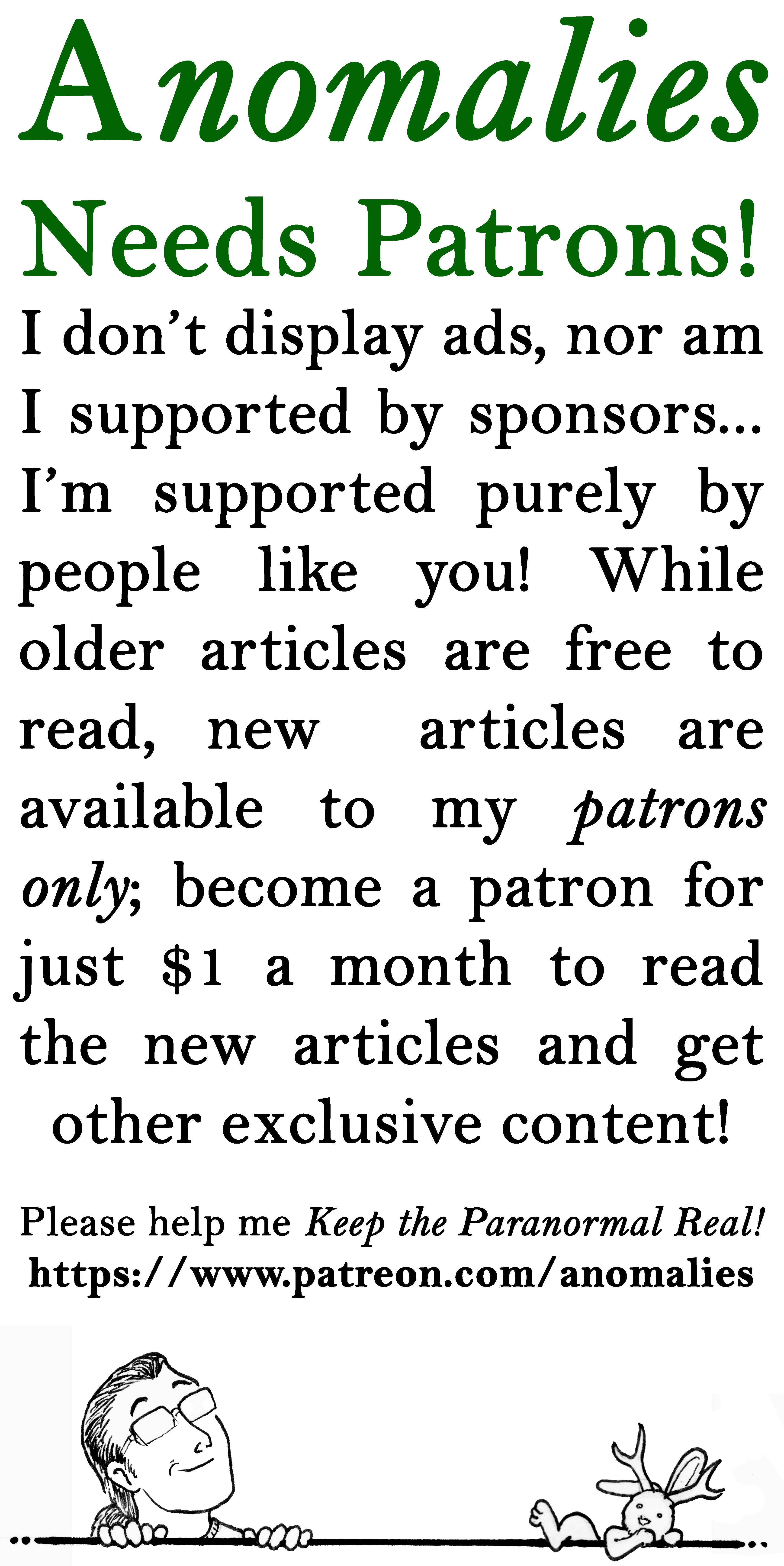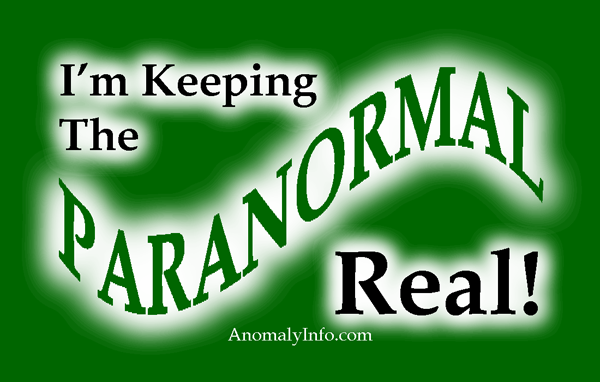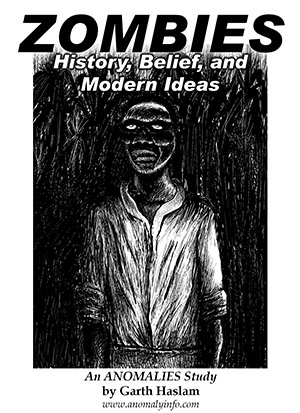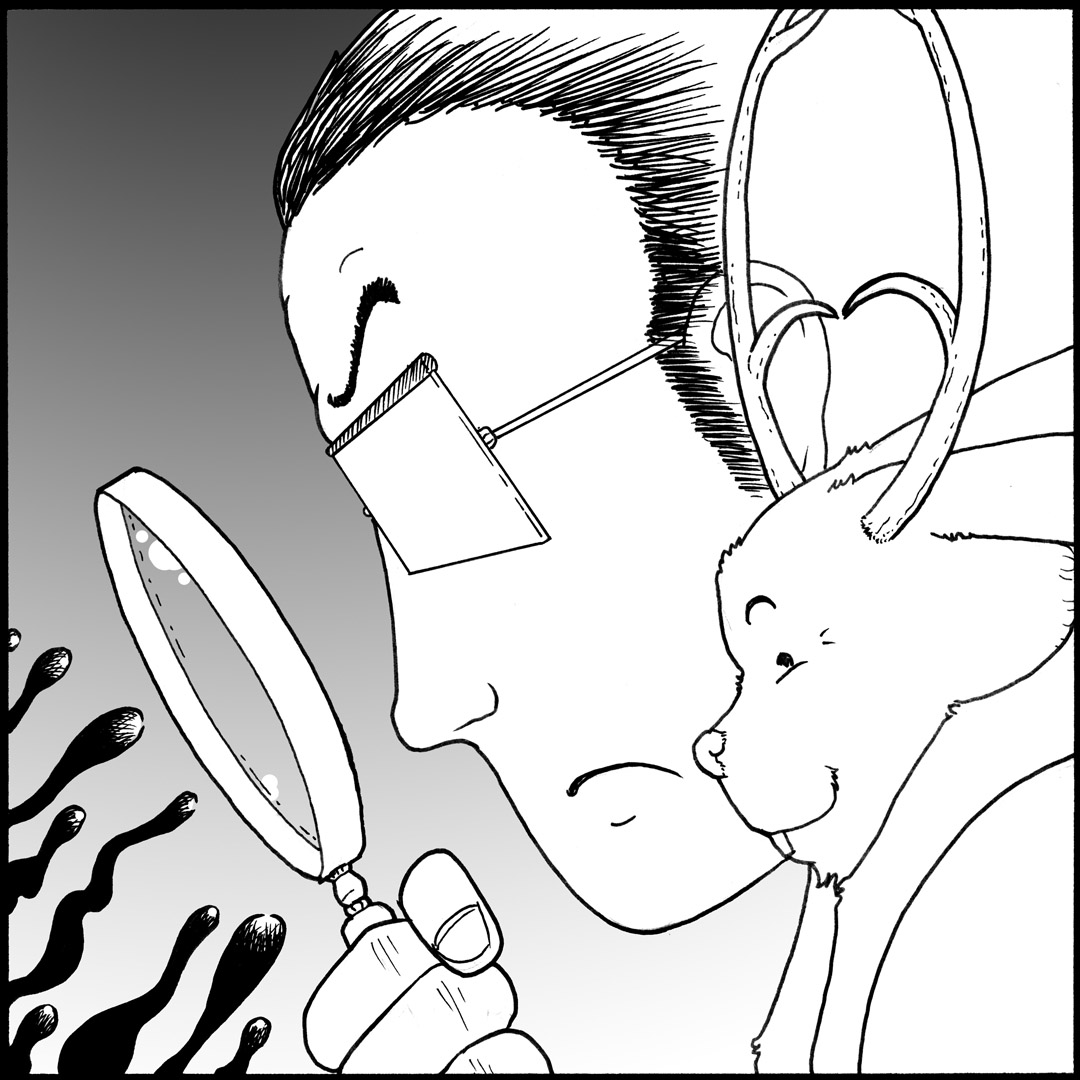1960, August 24: A Suggestion of Death
Around 6:00 p.m. on Wednesday, August 24, 1960, Finis P. Ernest, businessman of Oklahoma City, died rather suddenly. This fact struck his doctor, James Mathis, as being very strange, for Ernest had been in the hospital all day in good health, and had been in a cheerful mood when Mathis had talked to him around 5:00 p.m. that day... but Ernest's death did fit into an odd pattern of illness that Mathis had been slowly piecing together. And, as Finis Ernest was laid to rest and the world moved on, Mathis began investigating that odd pattern; he eventually came to a very startling conclusion.
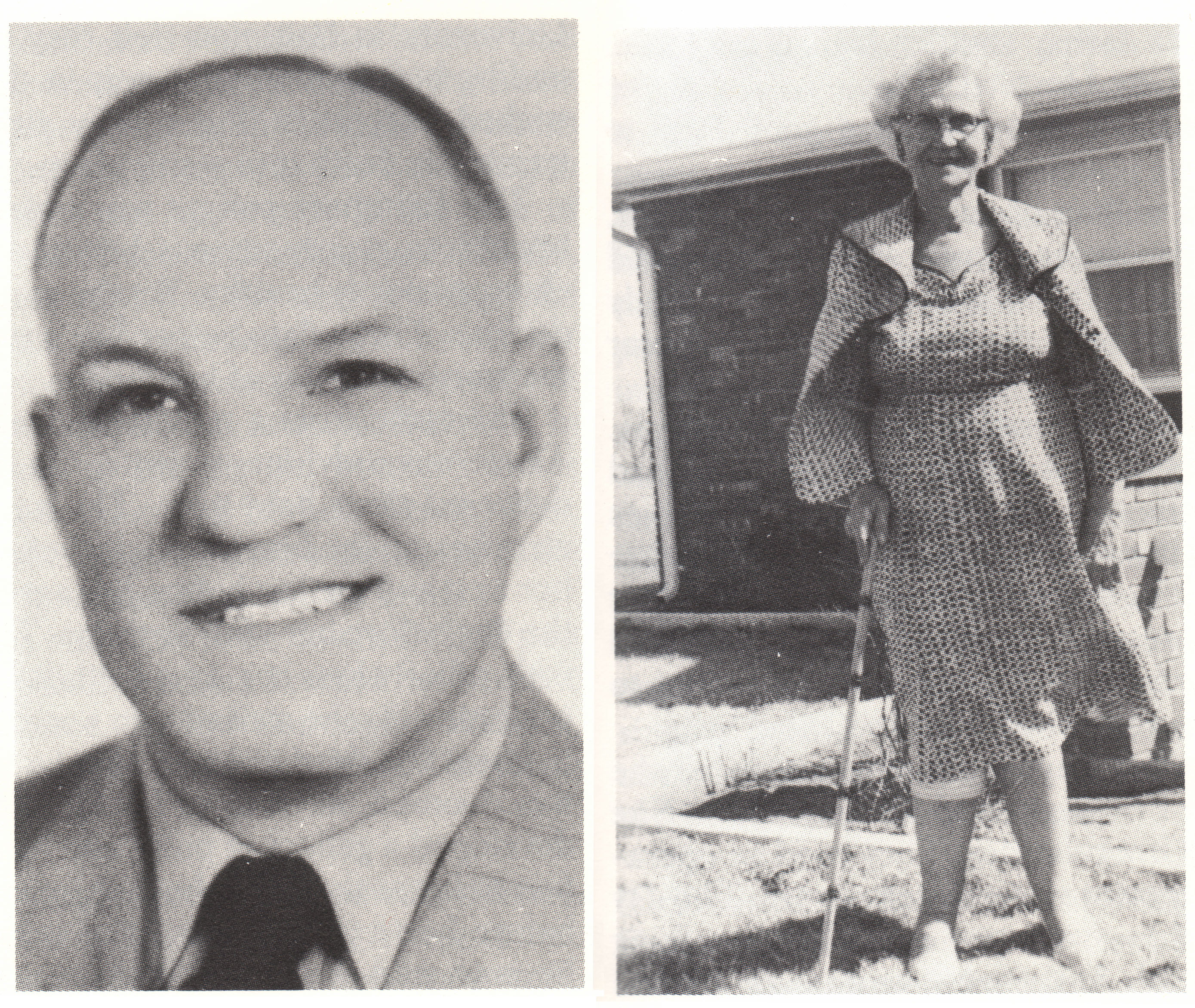 Finis P. Ernest, and his mother Mary Ellen Ernest. [Larger version here]
Finis P. Ernest, and his mother Mary Ellen Ernest. [Larger version here]
Ernest's father had died when he was just twelve years old and, as the eldest boy in a family consisting of his mother, two brothers, and two sisters, Finis was forced to step up and become the 'man of the house'... the income provider. By the time of his death at age 53, he had built up a successful nightclub business which he had sold for a good profit, and was preparing to invest in a new business. He had been married three times, the first two ending after just a few weeks, but the third time very happily with his wife Josephine; and they had a son, Winston. He had always been a fairly healthy man, but he began to have odd asthma-like attacks around the time he first wanted to sell his nightclub.
In January 1960, Ernest was admitted to the Veterans Administration Hospital in Oklahoma City in a semi-conscious state. After two weeks, he seemingly recovered from the asthma-like illness and was released. Six months later, in July, Ernest was readmitted to the VA Hospital with not only the asthma-like symptoms, but also now fits and convulsions. Later research showed that as the sale was being finalized on the nightclub, Ernest's attacks kept getting worse; he had gone to private hospitals six times in the months intervening his first and second visit to the VA Hospital, a fact he did not tell the VA Hospital at the time. This second visit is when Ernest was put into the care of Dr. Mathis... and this is also when Mathis started to notice the odd pattern to the attacks.
Nothing was actually physically wrong with Ernest; his heart was fine, there were no signs of any larger medical problem. After a few days of rest in the hospital, the symptoms all disappeared and he was well enough to be released again and, apparently, Ernest went to visit his mother after leaving the hospital.
Within hours, Ernest was wheezing again. In forty-eight hours, he was readmitted to the VA Hospital, in a 'near-terminal condition'. The staff were able to mitigate the symptoms and stabilize him, but Ernest was clearly in a state of depression as he expressed 'feelings of utter futility and hopelessness.' Still, after several more days in the hospital, both his health and his attitude had clearly improved, so he was allowed to go out for a day.
He went to visit his mother. He had a relapse and was rushed back to the hospital.
By now Dr. Mathis and the rest of the staff knew that there was some sort of connection between Ernest's mother and his illness, though it wasn't clear what that was. When next Ernest had recovered enough to take a weekend away from the hospital, Dr. Mathis asked Ernest to not visit his mother... to go anywhere else but there. That weekend, Ernest and Josephine drove off to the town where Ernest had been born, around 150 miles west of Oklahoma City. When Ernest returned to the VA Hospital that Sunday, Josephine reported that he'd had perfect health the whole weekend; not a wheeze, no difficulty in breathing at all. The difference was so clear that even Ernest noted, saying to Dr. Mathis "looks like I'm allergic to my mother."
Ernest's relationship with his mother -- Mary Ellen Ernest -- was abnormally close, perhaps due to his having to grow up fast at the age of twelve... a process most likely forced along by his mother. On many occasions Ernest had expressed to Dr. Mathis his belief that his mother's judgement in things was absolutely infallible. Both of his first two marriages had been against her will and she had predicted each would fail; they did. His third marriage, to Josephine, had been previously approved by his mother; and it was the one that lasted. In this and many other ways, she had convinced Ernest that her predictions would never fail.
The nightclub business had been established with his mother as his business partner. She had not wanted to sell the business, even for a profit; and she was very clear with Ernest that he should not do it. "Do this," she had said, "and something dire will happen to you." Two days later, Ernest was admitted to a hospital with the asthma-like symptoms for the first time.
On his final day alive, August 23, Ernest was in a good mood. He had made plans with his wife on how to reinvest the money from the nightclub sale, and had a long and cheerful interview with Dr. Mathis about these plans and his hopes for the future. Sometime after this, Ernest called his mother to inform her that he and Josephine had decide to reinvest the money into a new venture in which his mother would not be part of. According to Josephine, Ernest's mother had listened quietly as Ernest explained all this to her. Her only response was to ask: "Son, have I ever been wrong?"
Ernest said, "No." She further asked him: "What did I tell you?" He answered: "You said something dire would happen to me." She said: "It will. It will."
Within the hour, Finis P. Ernest was dead.
An autopsy again confirmed that Ernest had been in good health. He had not had a heart attack or stroke. There seemed to be no reason for him to be dead... unless, as Dr. Mathis concluded, Ernest's absolute faith in his mother's prediction caused the businessman to die from the simple belief that he was supposed to.
The Report
Mathis' investigation of Ernest's death was published in the journal Psychosomatic Medicine in March 1964... which I have not yet gotten a copy of myself. Mathis named the article A Sophisticated Version of Voodoo Death, after the term 'voodoo death' coined in 1942 by Dr. Walter Cannon to describe the possibility of a death caused due to a body being overly stressed by fear. Such deaths had been recorded in aboriginal societies where victims threatened with death by magic have apparently dropped dead due to their own belief they were supposed to.
The account of Finis Ernest's death itself really only went public in 1985 when it was featured in the British TV series Arthur C. Clarke's World of Strange Powers. In the TV show, as well as in the accompanying book for the series, interviews with Mathis and Ernest's wife Josephine, as well as quotes from Mathis' investigation, were used to explain the strange matter. My accounting above was compiled from these two sources, as well as a newspaper article reporting Ernest's time of death and some details of his family.
Anomalies -- the Strange & Unexplained, as well as my other website -- Monsters Here & There -- are supported by patrons, people like you! All new Anomalies articles are now posted for my patrons only, along with exclusive content made just for them. You can become a patron for just $1 a month!
|

